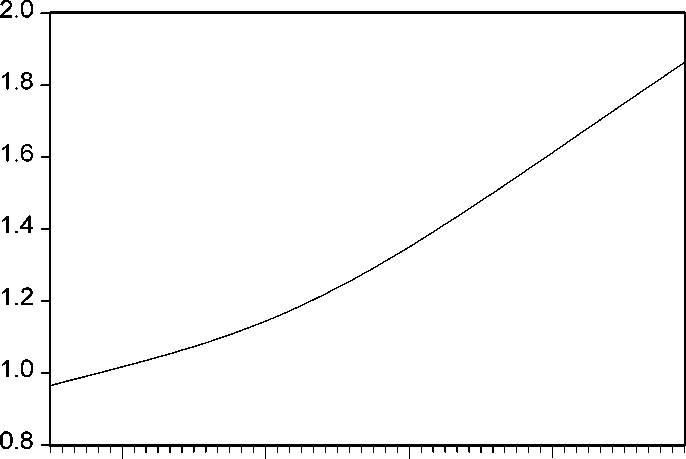William Davidson Institute Working Paper 487
Figure 9. Dynamics of relative labor share index (trend)

1998 1999 2000 2001
----relative labor share index
IV. Policy implications and future directions of analysis
The traditional notion of the BS effect or dual inflation does not ultimately hold
after the introduction of the CB in Bulgaria.
First, we can find an explanation for the lack of empirical justification in the
heritage of centrally planned economic system characterized by labor market
segmentation and real wage rigidity. The process of nominal wage convergence is driven
by forces other than labor productivity.
Second, probably the most important factor that hinders our econometric
verification of the BS effect is that great part of the non-tradable prices is presented by
administratively managed prices, which were not completely liberalized. In the period of
transition, some services (education, healthcare, etc.) were liberalized and automatically
resulted in further increase in the general price level. The prices of energy, central
heating, water supply and other utilities are still under their cost recovery levels. At the
moment they present about 1/3 of the prices of non-tradables and are not market
24
More intriguing information
1. Biologically inspired distributed machine cognition: a new formal approach to hyperparallel computation2. Naïve Bayes vs. Decision Trees vs. Neural Networks in the Classification of Training Web Pages
3. The name is absent
4. Better policy analysis with better data. Constructing a Social Accounting Matrix from the European System of National Accounts.
5. NVESTIGATING LEXICAL ACQUISITION PATTERNS: CONTEXT AND COGNITION
6. Constrained School Choice
7. The name is absent
8. The name is absent
9. The name is absent
10. Do the Largest Firms Grow the Fastest? The Case of U.S. Dairies